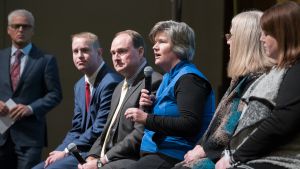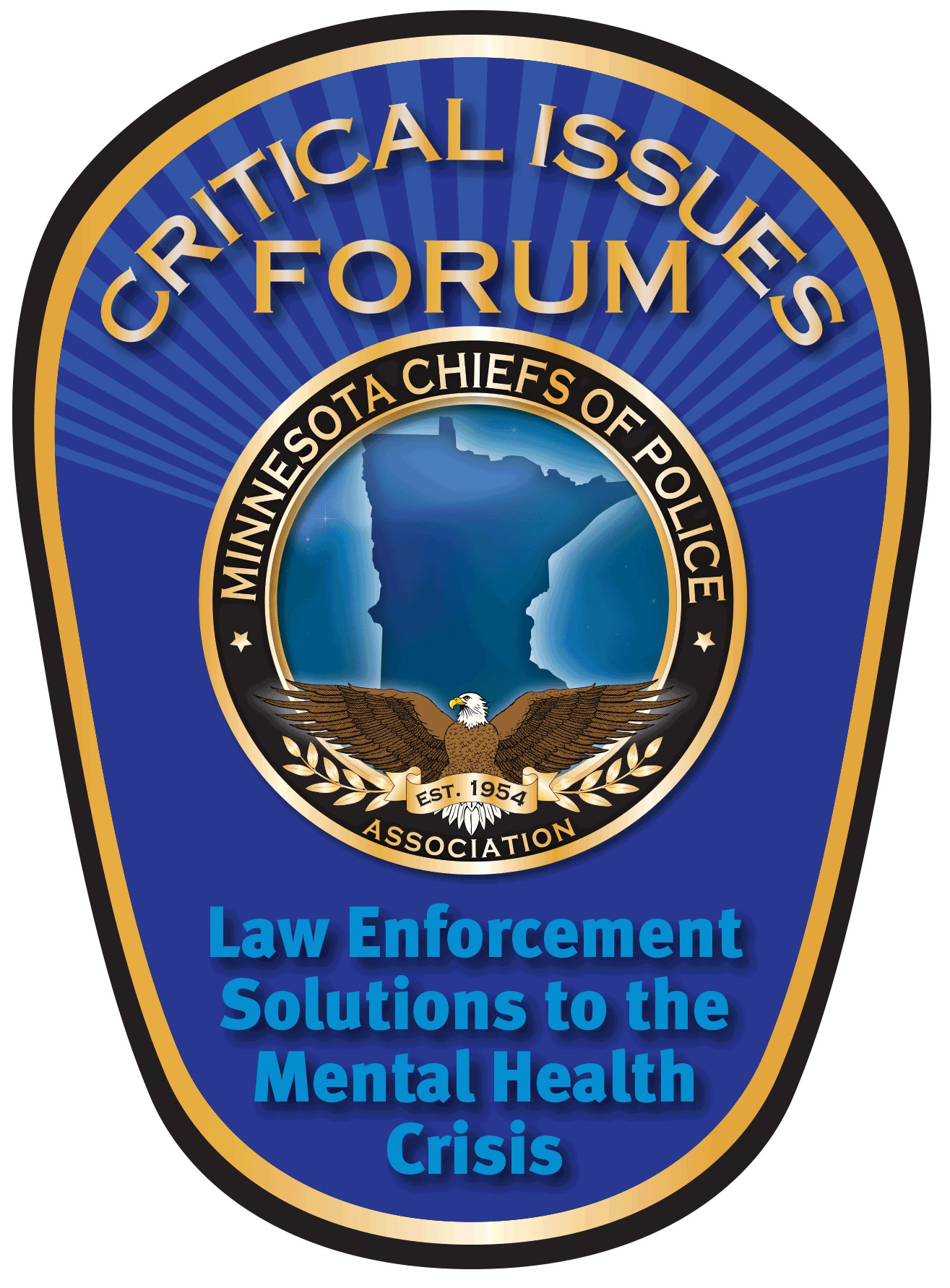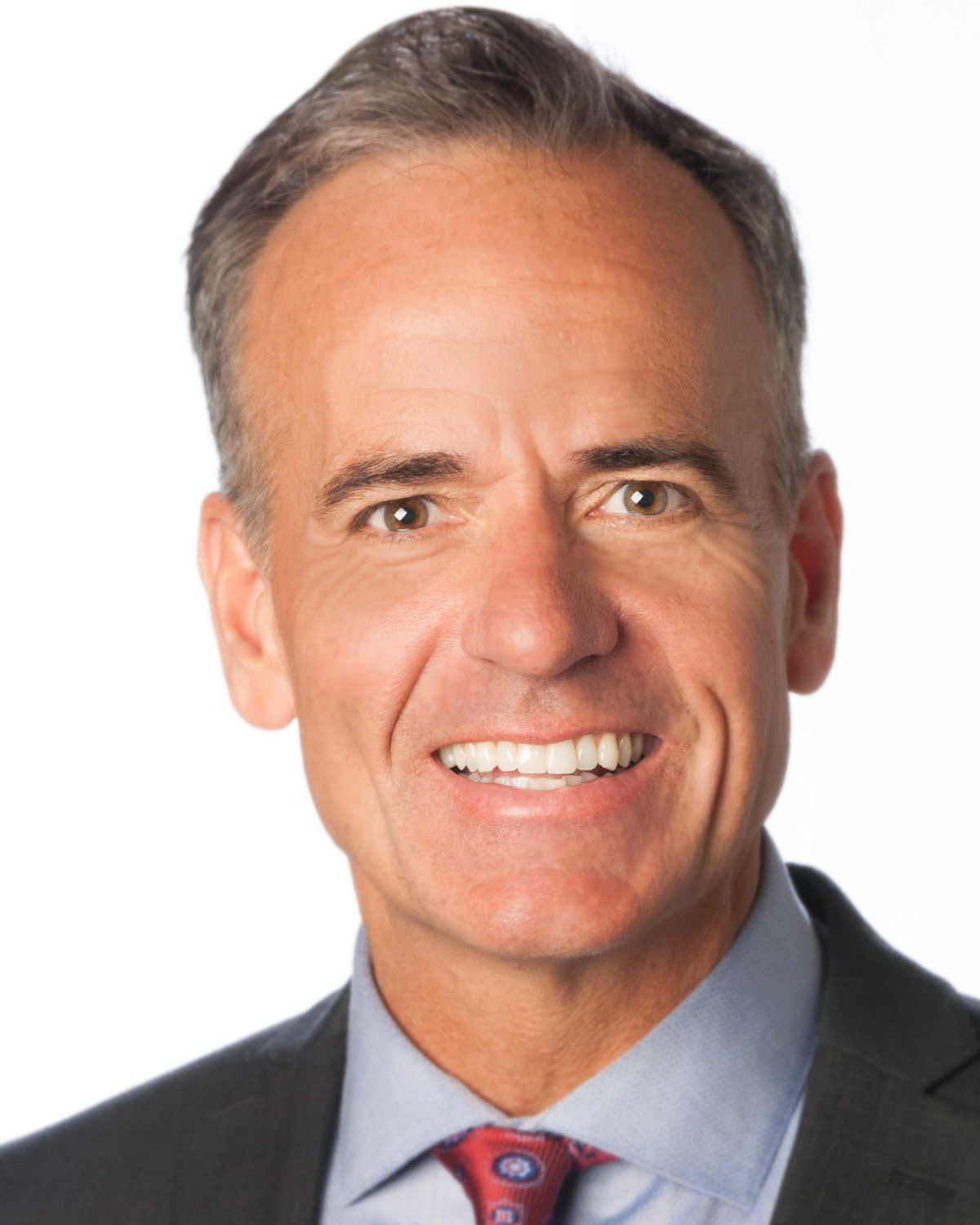CIF Mental Health Crisis
Explore law enforcement strategies for mental health crises at MCPA's Critical Issues Forum, highlighting embedded social workers and crisis training.
MCPA - Nearly 100 law enforcement leaders participated in MCPA's final Critical Issues Forum of the year with a program focused on law enforcement solutions to the mental health crisis. The event highlighted programs currently in use that include embedded social workers (Duluth), dispatch triage that helps field calls from mentally ill individuals (Ramsey County), Crisis Intervention Training and the Minneapolis Police Co-Responder Project.
Click HERE to watch the webcast
Sue Abderholden, the executive director of NAMI Minnesota, told the audience substantial research on community mental health resources already points the way to more solutions.
 "I don't want to see another task force on mental health because all we would have to do is pull together the recommendations from all of these years and do them," she said. "We should do what President Eisenhower suggested, that we have a community mental health center for every 50,000 people and that every hospital have an inpatient psychiatric unit."
"I don't want to see another task force on mental health because all we would have to do is pull together the recommendations from all of these years and do them," she said. "We should do what President Eisenhower suggested, that we have a community mental health center for every 50,000 people and that every hospital have an inpatient psychiatric unit."
A majority of Minnesota police chiefs report an increase in the number of calls for service where individuals are in a state of emotional crisis. According to a survey of more than 300 voting MCPA members, 20-percent of local, municipal agencies have seen a 50-percent increase in the number of mental health related calls over the last five years. A Star Tribune survey of nine of the state’s largest law enforcement agencies found that such calls have increased an average of 34-percent in the past six years.
 Ken Barlow, chief morning meteorologist at KSTP 5 Eyewitness, also shared his own perspective on living with a mental illness. Barlow first revealed his diagnosis of bipolar disorder five years ago and has since encouraged people to talk openly about mental health and the need for more resources.
Ken Barlow, chief morning meteorologist at KSTP 5 Eyewitness, also shared his own perspective on living with a mental illness. Barlow first revealed his diagnosis of bipolar disorder five years ago and has since encouraged people to talk openly about mental health and the need for more resources.
At least 45 percent of the people who have died in forceful encounters with law enforcement in Minnesota since 2000 had a history of mental illness or were in the throes of a mental health crisis, according to a Star Tribune report, published in June of 2016. The Treatment Advocacy Center, a Virginia nonprofit that advocates for better care of the mentally ill, reports people with severe, untreated mental illness are 16 times more likely to be killed in a police encounter.
This troubling trend has resulted in a variety of serious challenges for law enforcement leaders and the communities they serve. Police chiefs at agencies large and small, urban and rural are asking themselves how to better train officers to handle such calls and how to best manage available resources in order to treat these individuals with dignity and respect.
Below is the agenda for the forum.
MCPA Critical Issues Forum: Law Enforcement Solutions to the Mental Health Crisis
- Introductions
- What’s the extent of the problem?
- An overview of the issue before Minnesota law enforcement agencies with Andy Skoogman and Bob Jacobson of MCPA
- How did we get here?
- A history of the Mental Health system in Minnesota with Sue Abderholden, executive director of NAMI Minnesota
- A person story – Living with mental illness from Ken Barlow, chief morning meteorologist at KSTP 5 Eyewitness News
- What are we doing today? Law Enforcement Models
- Embedded social workers - Chief Mike Tusken, Duluth Police Department
- Minneapolis Police Co-Responder Project - Inspector Kathy Waite
- Dispatch Triage - Brian Theine, Crisis Program Manager at Ramsey County
- Crisis Intervention Training (CIT) – Chief Jeff Tate, Shakopee Police Department
- Where do we go from here? A panel discussion centered on solutions
- Legislative – Rep. Nick Zerwas (R) Elk River
- Pre-Service Education – Mary Vukelich, Century College
- Training options – Nathan Gove, Minnesota POST Board
- Mental Health Advocacy – Sue Abderholden, Executive Director NAMI
- Practitioners - Brock Wolff, CEO, Nexus
- Takeaways and final thoughts
About Nexus:
Nexus is a national, nonprofit, 501(c)(3) organization that provides youth and family mental health solutions to nearly 1,000 youth and families each day through a continuum of services that range from in-home, community-based care to residential treatment and inpatient care. The organization currently operates eight business units in five states.
